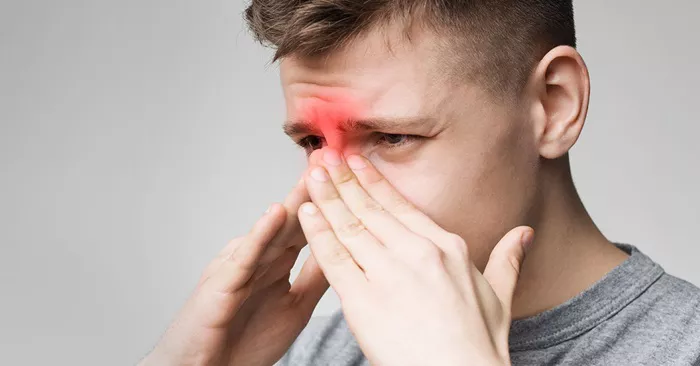Cancer is a life-changing illness that affects not only the body but also the mind. The physical challenges of fighting cancer are well-known, from grueling treatments like chemotherapy and radiation to surgeries and hospital stays. However, the psychological impact of surviving cancer is often less discussed, yet it plays a crucial role in a patient’s overall well-being. For many cancer survivors, the emotional aftermath of diagnosis and treatment can be just as challenging as the physical recovery. This article delves into the various psychological effects that cancer survivors may experience, the factors that contribute to these emotional struggles, and the strategies that can help survivors cope with these challenges as they move forward with their lives.
The Emotional Rollercoaster of Cancer Diagnosis and Treatment
Receiving a cancer diagnosis is an overwhelming experience. It disrupts the survivor’s life in many ways, causing not only fear and uncertainty but also anxiety about the future. The psychological impact begins from the moment of diagnosis and continues through the treatment period. Cancer survivors often face a rollercoaster of emotions, ranging from shock and disbelief to fear of death and concerns about the impact on their loved ones.
The treatment itself is physically and emotionally draining. While undergoing chemotherapy, radiation, or surgery, patients may experience fatigue, nausea, and pain, but they also face emotional struggles. The uncertainty of treatment effectiveness, the potential for relapse, and the alteration of body image can contribute significantly to emotional distress. In many cases, patients may feel isolated, confused, and fearful, not knowing what their future holds.
Post-Treatment Psychological Effects
While physical recovery from cancer treatment is a primary focus for many healthcare providers, psychological recovery is just as important. In fact, the psychological impact of surviving cancer can be long-lasting and, in some cases, can even outlast the physical symptoms. Many cancer survivors experience a range of psychological issues, even after the disease is in remission or they have completed treatment. These effects can include anxiety, depression, post-traumatic stress disorder (PTSD), and feelings of guilt or inadequacy.
Anxiety and Fear of Recurrence
One of the most common psychological effects of surviving cancer is the fear of recurrence. Even after successful treatment, cancer survivors often live with a constant worry that the cancer may return. This fear can be overwhelming and may interfere with the survivor’s ability to move forward with their life. The emotional distress related to this fear is often referred to as “survivor’s anxiety.” Survivors may become hypervigilant about their health, constantly monitoring their bodies for signs of cancer’s return, and this vigilance can be mentally exhausting.
The fear of recurrence can manifest in different ways for different individuals. Some survivors may experience periodic anxiety attacks, while others may avoid certain activities or situations that remind them of their illness. The uncertainty of living with the possibility of recurrence can affect their ability to enjoy life fully, even when they are in remission.
Depression
Depression is another common psychological impact on cancer survivors. According to studies, cancer survivors are at a higher risk of experiencing depression than the general population. The emotional strain of coping with cancer, combined with the physical side effects of treatment, can lead to a sense of helplessness and sadness. Survivors may feel disconnected from their previous lives and may struggle with feelings of loss. This depression can be further compounded by the financial burdens of treatment, changes in family dynamics, or the difficulty in resuming a normal routine.
Depression may also be linked to changes in body image that many survivors experience. The physical changes caused by cancer treatments, such as hair loss, scarring, or mastectomy, can have a profound effect on a person’s self-esteem and emotional health. This can lead to feelings of inadequacy or a loss of identity, which can contribute to depressive symptoms.
Post-Traumatic Stress Disorder (PTSD)
PTSD is often associated with survivors of traumatic events, such as combat veterans or individuals who have experienced natural disasters. However, cancer survivors are also at risk for developing PTSD. The trauma of a cancer diagnosis and the emotional strain of treatment can lead to symptoms of PTSD, such as flashbacks, nightmares, and severe anxiety. The trauma may also manifest in avoidance behaviors, where the survivor may try to avoid reminders of the illness, such as medical appointments or discussions about cancer.
The emotional impact of undergoing treatments like chemotherapy, which can cause significant physical changes, can lead to feelings of powerlessness and vulnerability, contributing to PTSD. The fear and uncertainty associated with the disease can create a lasting emotional scar that survivors carry with them long after treatment ends.
Guilt and Shame
Another psychological impact that cancer survivors may experience is a sense of guilt or shame. Survivors may feel guilty for surviving when others have passed away or they may feel responsible for their diagnosis, believing that lifestyle choices or personal decisions led to the cancer. Some may also feel guilty about the emotional toll that their illness has taken on their family and friends.
Additionally, survivors may experience feelings of shame due to changes in their appearance or limitations that result from treatment. This can lead to a sense of not being the person they once were, causing emotional distress and difficulties with self-acceptance.
The Impact on Relationships
Cancer does not only affect the survivor; it impacts their family and loved ones as well. During treatment, caregivers often take on a significant emotional and physical burden, which can strain relationships. Cancer survivors may experience a sense of disconnect from their loved ones once treatment ends. The survivor’s emotional needs may shift, and they may struggle with feelings of isolation or loneliness, even when surrounded by supportive family and friends.
Family members may also experience emotional distress as they cope with the survivor’s ongoing psychological struggles. Caregivers and loved ones may feel helpless or frustrated if the survivor’s emotional wounds do not heal as quickly as their physical ones. This can lead to tension, miscommunication, or resentment, which further complicates the healing process.
Moreover, relationships with partners may be impacted by the survivor’s changed body image or sexual health. Survivors may experience difficulties with intimacy due to changes in their physical appearance, sexual function, or the emotional toll of the disease. This can create strain in romantic relationships, as both partners navigate these new dynamics.
Coping Strategies for Cancer Survivors
While the psychological impact of cancer is profound, there are several strategies that can help cancer survivors cope with the emotional challenges they face. Each survivor’s emotional journey is unique, but understanding common psychological effects and implementing coping mechanisms can significantly improve mental well-being.
Professional Therapy and Counseling
One of the most effective ways to address the psychological impact of cancer is through professional therapy. Counseling or psychotherapy can provide survivors with a safe space to express their feelings, process their trauma, and develop healthy coping strategies. Cognitive-behavioral therapy (CBT), in particular, is effective for treating anxiety, depression, and PTSD. CBT helps individuals identify and challenge negative thought patterns, replacing them with healthier, more constructive ways of thinking.
Survivors may also benefit from group therapy, where they can connect with others who have gone through similar experiences. Group therapy provides a sense of community and understanding that can reduce feelings of isolation. Support groups, whether in-person or online, offer cancer survivors the opportunity to share their challenges, learn from others, and receive emotional support from peers who truly understand what they are going through.
Mindfulness and Relaxation Techniques
Mindfulness practices, such as meditation, yoga, and deep breathing exercises, can help cancer survivors manage stress and anxiety. These techniques encourage individuals to focus on the present moment, helping them to break free from the cycle of worry and fear. Mindfulness has been shown to reduce symptoms of anxiety, depression, and PTSD, making it an effective tool for survivors who are struggling with emotional distress.
Progressive muscle relaxation and guided imagery are also relaxation techniques that can help reduce physical tension and promote a sense of calm. These techniques, when practiced regularly, can support emotional well-being and improve overall quality of life for cancer survivors.
Building a Strong Support System
Social support is essential for cancer survivors as they navigate the emotional challenges of life after cancer. Family, friends, and caregivers play a crucial role in helping survivors feel connected and supported. It’s important for survivors to communicate openly with their loved ones about their emotional needs, while also giving loved ones the space to express their own feelings.
Joining cancer survivor support groups is another way to build a network of support. Sharing experiences with others who have been through similar challenges can help survivors feel less isolated and more understood. Peer support is powerful, and the connections formed in support groups can provide long-term emotional healing.
Physical Activity and Lifestyle Changes
Engaging in physical activity can have a profound positive impact on mental health. Exercise has been shown to reduce symptoms of depression, anxiety, and stress. For cancer survivors, maintaining a healthy lifestyle that includes regular physical activity, proper nutrition, and adequate sleep can improve both physical and psychological recovery. Exercise not only helps survivors regain strength but also boosts self-esteem and provides a sense of accomplishment.
Conclusion
The psychological impact of cancer on survivors is often profound and long-lasting. From anxiety and depression to post-traumatic stress and feelings of guilt, the emotional toll of surviving cancer is significant. However, with appropriate care, support, and coping strategies, survivors can overcome these challenges and move forward with their lives. By acknowledging the emotional impact of cancer and seeking help when needed, survivors can achieve mental healing and improve their overall quality of life. The journey after cancer is not just about physical recovery—it’s also about healing the mind and soul.
Related Topics

































